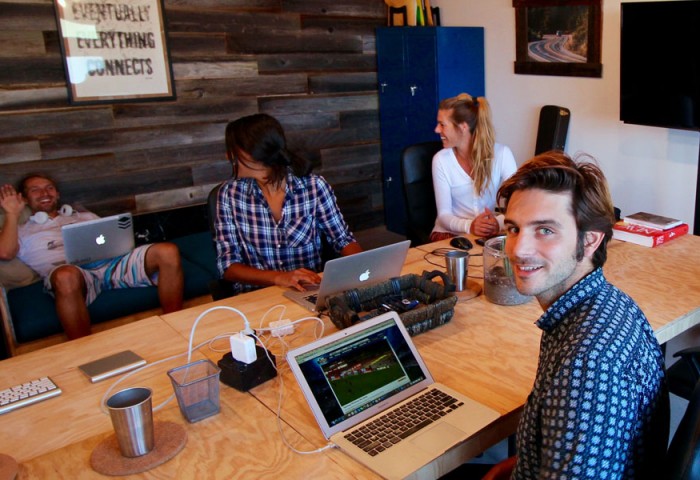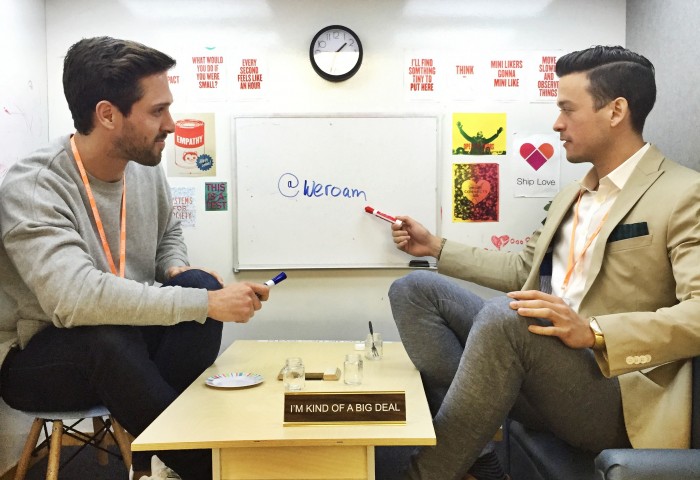We spoke with Scrapinghub about how they work, their team, and how they succeed as a distributed organization.
How many employees and contractors do you have?
We have around 130 Scrapinghubbers.
What’s the importance of location independence at your company?
Location independence is basically in our DNA since our two founders are based in Ireland and Uruguay. We were 100% remote from day one.
Technically speaking, we have two small offices: one in Montevideo and another one in Cork. Our Uruguay and Ireland staff tend to work from them, but no one is expected to commute there.
Did you start with the intention of having a distributed or nomadic team? If not, when did you decide to support people working remotely?
Yes, we’ve always organized to operate as a 100% remote team. We’ve never even considered alternatives.
What are some of the challenges you face as a team without a central location or office?
One of the major challenges is face-to-face team meetings, specifically in a get-to-know-each-other kind of way. While certain members of our team periodically meet at events such as PyCon or PyData, organizing a company-wide event with people flying in from a hundred locations is no small feat.
From an operational standpoint, face-to-face meetings also have merit. Body language can communicate a lot of implicit information. Slack and Google Hangouts are great tools, but they don’t let you fully capture this implicit information.
The other challenge is, of course, having a reliable WiFi connection. This is particularly true for those of us who travel full time. It’s easy to locate a coffee place with reliable WiFi in the United States, most of Europe, and other touristy areas; much less so when you’re in a developing country.
What’s the upside that comes with not having a central location or office?
One word: freedom.
Being remote opens all sorts of possibilities and opportunities. You can work with your furry friend at your side, from your terrace, or lead your team from a beach resort in the Cook Islands. You’re not tied to any specific location or even work hours. This lets you organize your work day around your life rather than the other way around.
Are there important non-office workspaces in the history of building your company—a favorite coffee shop, bar or similar space?
The conference gatherings where we organize hackathons really bring our team together.
What % of your company regularly works remotely?
100%
Any advice or best practices for supporting the work styles of your teammates from a distance?
We make sure that team members overlap at least a few hours regardless of time zone. This allows teammates to talk in real time each and every day, which avoids the issue of having coworkers who are completely isolated from the team.
What types of places do your teammates choose to work from when remote?
Many of our teammates work from home. Some have a dedicated room in their house, others prefer their terrace. We have Scrapinghubbers who are nomads that travel the world, working from hotels, rented houses, etc. Still other members of the team prefer the periodic social interactions you get by working in public or shared workplaces. In fact, we have at least one colleague who met his future wife while he was getting work done in a coffee shop.
What qualities do you look for when hiring for a distributed team?
Besides the crucial ability to work autonomously, we pay special attention to their motivations and interest in working for a remote team. Our teammates tend to split into two groups: those who want to live a nomadic lifestyle and those who want to spend quality time with their family.
You’ve built great products that help the distributed workforce at large. Why did you choose to do that?
With communication being a major challenge with a distributed team, we are always looking to improve our in-house tools. We also have the benefit of dealing in software, a medium that really facilitates a distributed workforce.
What are your thoughts on Workfrom’s role in the way work is getting done — now and in the future?
Remote work and distributed teams will only continue to become more popular in the future. The obstacles that remote companies face are shrinking rapidly with the advent of increasingly impressive technology and systems of communication. Workfrom provides a valuable service in helping remote teammates regain that office feel even when on the move.
Is there anything else you’d like to share?
Having a remote team is an incredibly enriching and valuable experience. Because we are not limited by location, the cultural diversity of our Scrapinghubbers is staggering. We delight in cross-cultural exchanges and in the new perspectives provided by each and every one of our teams. However, miscommunication and varying levels of language ability can be a challenge and so we successfully navigate these waters through patience, understanding and consistent clarification.
Remember that all companies are in the process of evolving, so don’t be afraid to try out new techniques, programs and services that might smooth the remote work path. Check out our blog if you are interested in reading more about how we are managing one of the largest distributed workforces in the world.
To learn more about Scrapinghub, their platform and their remote team and career opportunities, check out scrapinghub.com.





Responses